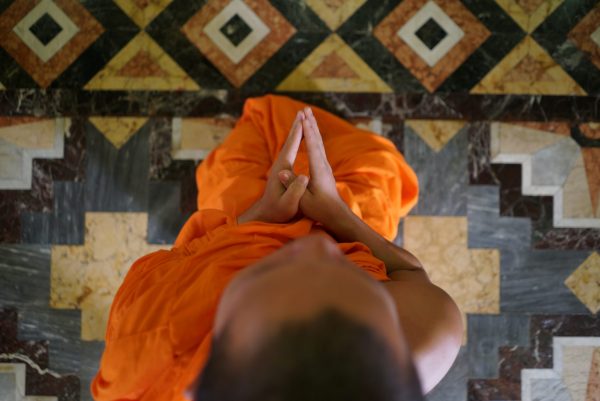While the 2017 constitution still supports Buddhism and other religions, the other two objectives have been replaced by a new mandate. In order to protect Buddhism, the Constitution requires that the state only direct its assistance to the Theravada school of Buddhism and that the government guard Buddhism against all forms of desecration.
Thailand does not have an official state religion. Although 93 per cent of the population is Buddhist, Thailand allows the free exercise of other religious beliefs. The constitution prescribes that the king profess Buddhism, but it also entitles him as the ‘upholder of all religions’ practised by the Thai people.
In 1997 and again in 2007, a group of Buddhists campaigned for Buddhism to become the official state religion. The constitutional drafters rejected such requests for fear of breaking religious harmony and raising social tension.
The 2017 mandate can be seen as a compromise. It moves Thailand closer to establishing Buddhism as the official religion and also moves it closer to religious conflict. It is important to understand both what prompted some Thais to demand official recognition of Buddhism and why the 2017 constitutional drafters — who are basically the same group of elitist technocrats that drafted the earlier two constitutions — gave in to that pressure.
Since the 1980s, Thai Buddhism has faced mounting pressure to maintain its dominance. The Sangha Supreme Council (an official body that oversees the correct belief and correct practise of Thai Buddhism) was hit by a series of scandals involving sex, drugs, money, murders and other mischievous deeds. These scandals are symptoms of the Council’s obsolete structure, which fails to effectively regulate monks’ behaviour. Promotion in the Council is based on seniority, which leaves the Council full of ageing abbots who have lost touch with the fast-changing modern world.
Laxity and the council’s inability to connect with younger generations has allowed non-conventional Buddhist movements to grow. Movements such as the Dhammakaya Temple are able to attract thousands of followers and organise a worldwide network. Santi Asoka (another well-known group) is openly critical of the Sangha Council’s greed. Traditional Buddhists consider both heretical sects.
In ancient Siam, a king would intervene to rescue the Council’s hegemony. The king may order a reform of Tipitaka (the books of Buddha’s teaching) or may purge the Sangha by promulgating rules of monastic conduct and by disrobing corrupt monks.
Modern governments are less inclined to get involved. The Council has been unsuccessful in all attempts to prosecute corrupt monks, which has led many to believe that more state attention is necessary.
In 2004, violence broke out in the Muslim-majority southernmost provinces. Muslim-Malay separatists deliberately slew monks and burned temples to express resistance to the Thai government. The news shocked many Buddhists, who then became convinced that Buddhism would eventually lose out to Islam. Islamophobia further fuelled the determination to entrench Buddhism’s dominance through constitutional endorsement.
A political movement also supports the demand for a greater presence of Buddhism in Thailand’s public sphere. Democratisation in Thailand has repeatedly failed, and Thailand’s greedy, immoral politicians are to blame. The situation worsened under the administration of Thaksin Shinawatra, whose corruption and human rights violations turned a large proportion of society against him. The anti-Thaksin demonstrators concluded that democracy is incompatible with Thailand’s unique context. They decided that ‘poor and uneducated commoners’ are too ignorant to be allowed a full democratic vote, so individuals of a superior moral standard should guide them.
Moralism is repeatedly reflected in the 2007 and 2017 constitutions. Both constitutions expand the power of the judiciary and watchdog agencies — the ‘morally upright institutions’ — to control elected (and allegedly malevolent) representatives. The constitutions assume that Thailand is morally and politically corrupt and that Buddhist morality may save the nation.
The change in Thailand’s policy on Buddhism is driven by the religion’s desire to preserve its hegemony, to revive past glory and to reintroduce itself into politics. The longer the political crisis in Thailand continues, the weaker the idea of secular politics will become.
Since the 2006 military coup d’etat, successive Thai governments have suffered from a crisis of legitimacy. Legitimacy crises are particularly acute in military governments, which suffer a lack of popular support. When a government cannot boast about its performance or enjoy democratic legitimacy, it resorts to a traditional source of legitimacy — religion. The junta justifies its oppressive, failing administration by asserting its position on the moral high ground.
What changes will the new constitutional mandate bring? The specificity of its language and aggressive tone signal Thailand’s growing intolerance of pluralism. In early 2017, the government cracked down on the Dhammakaya Temple. Soldiers stormed the temple searching for its abbot Dhammachaiyo, who had been charged with money laundering. The government also has plans to promulgate new laws to reform Thai Buddhism. Measures in these laws include the control of monastic finance and the criminalisation of heresy.
With its new policies, the government aims to unify Buddhism and restore its glory while suppressing non-conventional and non-Buddhist communities. Is this policy reasonable and well thought out? The 2017 constitutional mandate to patronise only Theravada Buddhism a worrying decision that will jeopardise religious freedom and will intensify the Muslim-Malay separatist conflict.
Khemthong Tonsakulrungruang is a PhD candidate at the University of Bristol.

